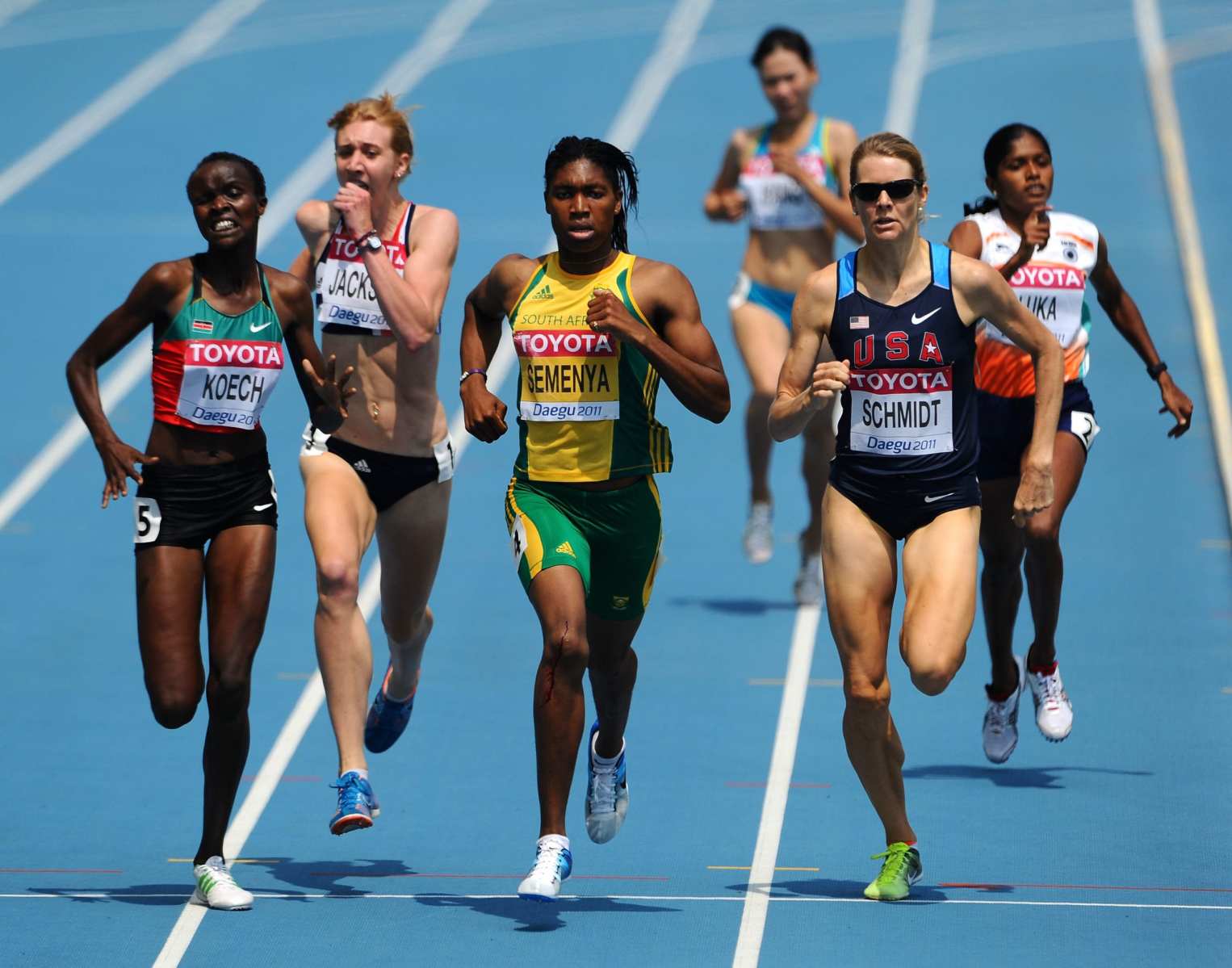Annet Negesa was Olympic-bound when she got the call.
The Ugandan mid-distance runner told researchers for a new report released by Human Rights Watch titled, “They’re Chasing Us Away from Sport: Human Rights Violations in Sex Testing of Elite Women Athletes,” that she had been undergoing what she thought were routine urine and blood doping testing for months, but the results hadn’t come back.
Then, in July 2012, as she was preparing to compete in the London Olympics, Negesa says her manager told her testosterone levels were too high and she would not be able to attend the games. If she wanted to keep running, she says, the International Association of Athletics Federations (now World Athletics) required she go to France and see a doctor.
Later that year, Negesa says she traveled to Nice where she underwent a physical exam and a doctor instructed her to get surgery in Kampala. According to the Human Rights Watch report, a local federation official took her to the appointment, where the physician told her he was going to perform “a simple surgery — like an injection.”
Hours later, Negesa says she awoke with scars on her abdomen and discharge papers. The doctor had removed internal testes, a procedure often done on intersex people which stops the body’s production of sex steriods, according to the report. The discharge papers said doctors had been “restrained from starting her on estrogen therapy awaiting further discussions” from the International Association of Athletics Federations.
Unable to regain strength, Negesa says she lost her university scholarships. Her manager quit in 2016. She sought asylum in Germany, where she now lives.
Negesa’s story makes up the opening narrative of a harrowing 121-page report released on Friday by Human Rights Watch that details the policing of women in sports, particularly when it comes to women of color, across the globe.
The report details nearly 80 years of sex determination testing in sports. According to the report, such testing was spurred by unfounded rumors that men were masquerading as women in international sporting competitions in the 1930s. The International Olympic Committee and World Athletics began sex testing in the 1940s and issuing certification to athletes to confirm eligibilty. By the 1960s, such tests were routine, but only for women athletes.
…the regulations are intrinsically discriminatory against women.
Human Rights Watch
“The fact that there is only such a regulation for women — and none for men — means the regulations are intrinsically discriminatory against women,” Human Rights Watch argues in the report. “Athletics regulations have resulted in profiling and targeting women according to often racialized gender stereotypes, which has a deleterious impact on all women.”
Among those impacts have been steep losses of income, social stigma, coercion and in some cases complete loss of bodily autonomy, the organization claims. Human Rights Watch says stories like Negesa’s, in which athletic governing bodies get to make critical decisions about athletes bodies and futures, are all too common.
“The regulations put physicians in a compromised position of ‘dual loyalty’ whereby physicians may have a conflict between their duties to their patients and their obligations to their employers,” the report argues. “This implicates physicians, the athletics associations that hire them to implement the regulations, and governments in human rights violations.”
Human Rights Watch calls on World Athletics to rescind its policy of “Differences of Sex Development” testing and defer to the United Nations policies for competition. The group also wants the International Olympic Committee to ban all eligibility requirements that require “medically unnecessary medical interventions.”
The report is sure to hit a nerve in the United States where legislatures from coast to coast have been weighing bills that would limit transgender student participation in girls athletics. A flurry of state bills aiming to prevent trans girls from playing on girls sports teams hit a dead-end when the pandemic shuttered statehouses in March. That legislation is expected to re-emerge in 2021. Republican Senators are also pushing for a federal law to the same effect, an unlikely lift with a Democratic-controlled House of Representatives and White House in 2021.
The report also raises fresh questions about the future of track star Caster Semenya who lost her appeal in June to compete in the Olympics women’s competition unless she agreed to take medication to lower her testosterone levels. World Athletics has defended its policy as necessary for maintaining fair play.
“World Athletics fully respects each individual’s personal dignity and supports the social movement to have people accepted in society based on their chosen legal sex and/or gender identity,” the organization said in a statement on its website, and that the regulations are “not about challenging an individual’s gender identity, but rather about protecting fair competition for all female athletes.”





